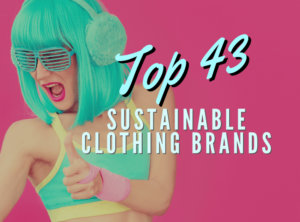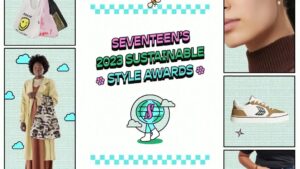
As the world increasingly acknowledges the environmental impact of fashion, the rise of sustainable fashion brands has become a crucial trend. These brands are not just following a fad but are at the forefront of a revolution aiming to reduce waste, minimize carbon footprints, and promote ethical practices. In 2024, several brands are leading this eco-friendly movement, setting new standards for the industry. Here’s a closer look at the top 10 sustainable fashion brands making significant strides this year.
1. Patagonia
Patagonia has long been a pioneer in sustainable fashion. Known for its commitment to environmental activism, Patagonia continues to lead the charge with its extensive range of eco-friendly products. The brand uses recycled materials for many of its garments and is committed to reducing its carbon footprint. Patagonia’s “Worn Wear” program encourages customers to repair, share, and recycle their gear, embodying its ethos of reducing waste and promoting sustainability.
Key Features:
- Recycled materials and organic cotton
- Repair and reuse programs
- Transparent supply chain
2. Stella McCartney
Stella McCartney is renowned for integrating sustainability into high fashion. As a luxury brand, Stella McCartney demonstrates that eco-friendly fashion can also be elegant and high-quality. The brand’s commitment to cruelty-free materials, such as vegan leather and organic cotton, sets it apart. Stella McCartney also champions circular fashion by focusing on designing garments that can be recycled and upcycled.
Key Features:
- Vegan leather and organic cotton
- Circular fashion approach
- High fashion and luxury sustainability
3. Reformation
Reformation is a popular name in sustainable fashion, offering stylish and eco-friendly clothing for women. The brand focuses on using sustainable fabrics and eco-conscious production methods. Reformation’s commitment to reducing waste is evident in its use of deadstock fabrics and its innovative recycling processes. With transparent practices and a focus on reducing its environmental impact, Reformation continues to be a leader in sustainable fashion.
Key Features:
- Use of deadstock and sustainable fabrics
- Eco-conscious production methods
- Transparent practices
4. Allbirds
Allbirds is known for its sustainable approach to footwear. The brand’s shoes are made from natural, renewable materials such as merino wool, eucalyptus tree fibers, and sugarcane. Allbirds prioritizes minimizing its carbon footprint through innovative practices like carbon offsetting and using eco-friendly packaging. The brand’s commitment to sustainability extends beyond its products to its overall business practices.
Key Features:
- Natural, renewable materials
- Carbon offsetting
- Eco-friendly packaging
5. Tencel
Tencel is not a brand but a material that has been making waves in sustainable fashion. Produced by the Austrian company Lenzing, Tencel is made from sustainably sourced wood pulp and is known for its soft, breathable, and biodegradable properties. Many sustainable fashion brands use Tencel to create eco-friendly garments, and its popularity continues to rise due to its minimal environmental impact.
Key Features:
- Sustainable wood pulp sourcing
- Biodegradable and breathable fabric
- Used by various eco-friendly brands
6. Veja
Veja is a French brand that has gained recognition for its commitment to ethical and sustainable sneaker production. The brand uses organic cotton, wild rubber from the Amazon, and recycled materials to produce its shoes. Veja’s transparency in its supply chain and its dedication to fair trade practices make it a standout in the world of sustainable fashion.
Key Features:
- Organic cotton and wild rubber
- Recycled materials
- Fair trade practices
7. Eileen Fisher
Eileen Fisher is celebrated for its timeless designs and commitment to sustainability. The brand focuses on using organic and recycled materials and is dedicated to reducing waste through its take-back program, which encourages customers to return used garments for recycling or repurposing. Eileen Fisher’s approach to sustainable fashion includes investing in fair labor practices and creating high-quality, long-lasting pieces.
Key Features:
- Organic and recycled materials
- Take-back program
- Fair labor practices
8. People Tree
People Tree is a pioneer in fair trade fashion, offering a range of eco-friendly clothing and accessories. The brand works directly with artisans and farmers to ensure ethical production practices and sustainable sourcing of materials. People Tree’s commitment to fair trade and environmental sustainability makes it a key player in the ethical fashion movement.
Key Features:
- Fair trade practices
- Ethical production and sourcing
- Collaboration with artisans
9. Mara Hoffman
Mara Hoffman is known for its vibrant and sustainable designs. The brand uses recycled and organic fabrics, such as Econyl and organic cotton, to create its collections. Mara Hoffman also focuses on transparency in its supply chain and is committed to reducing its environmental impact. The brand’s emphasis on ethical practices and sustainable materials aligns with its goal to promote a more responsible fashion industry.
Key Features:
- Recycled and organic fabrics
- Supply chain transparency
- Ethical practices
10. Ganni
Ganni is a Danish brand that blends contemporary fashion with sustainability. The brand has made significant strides in integrating sustainable practices into its production processes. Ganni focuses on using recycled materials and reducing waste, while also promoting circular fashion through its Ganni Repeat program, which encourages customers to recycle their Ganni pieces.
Key Features:
- Recycled materials
- Circular fashion initiatives
- Modern and stylish designs
Conclusion
The sustainable fashion movement is more than a trend; it’s a necessary shift towards a more environmentally conscious and ethical industry. The brands highlighted above represent a diverse range of approaches to sustainability, from using eco-friendly materials to promoting fair trade practices. By supporting these brands, consumers can contribute to a greener and more responsible fashion industry, making a positive impact on the planet.

